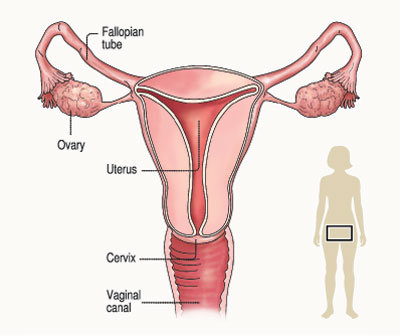Dealing with menopause
View(s): For all those women who are going through a difficult period in their lives and wondering what awaits them next, the Menopause Society of Sri Lanka gives some basic information.
For all those women who are going through a difficult period in their lives and wondering what awaits them next, the Menopause Society of Sri Lanka gives some basic information.
What is menopause?
‘Menopause’ is when the monthly menstrual bleeding of a woman stops naturally or because of some procedure she has undergone.
Under natural circumstances, menopause occurs when your ovaries stop releasing eggs or ova, while it also happens after the removal of your ovaries in an operation. In Sri Lanka, natural menopause usually occurs between the ages of 50-52 years.
Once the ovaries are empty of eggs, your female hormone (oestrogen) level falls. This causes a number of ailments.
How do you know that you have reached menopause?
Once the monthly bleeding stops for 12 months and there are ailments (symptoms) associated with menopause, it is considered that you have reached menopause.
Are there tests to confirm or diagnose menopause?
If your last menstrual periods have been 12 months before and if you are having ailments/symptoms of menopause, you do not need to do any further tests to confirm menopause.
Can someone reach menopause suddenly?
Menopause does not occur suddenly. As you reach the menopausal age, before the final menstruation, your periods tend to become irregular. The duration between two periods also gets longer and the bleeding gets less. This is called ‘perimenopause’ or ‘menopausal’ transition.
What are the ailments/symptoms of menopause?
Hot flushes – a feeling of sudden warmth in the body
Increased sweating during the night
Vaginal dryness
Reduced sexual pleasure
Low mood
Joint and muscle pain
Do all women have menopausal symptoms?
Not all women suffer ailments/symptoms of menopause. Some, around 80%, may have mild symptoms and others, around 20%, severe symptoms.
Is there any treatment for menopausal symptoms?
The treatment for menopausal symptoms includes lifestyle changes, hormones (Hormone Replacement Therapy – HRT) and non-hormonal therapies. Some may not require substitute hormones through HRT, while others may need some sort of treatment.
What are the problems that could occur after menopause?
Skin and hair – your skin and hair tend to lose some proteins. Therefore, the skin becomes dry, thin and itchy and gets wrinkled. The hair too becomes very thin.
Bones – due to the lack of hormones (oestrogen), your bones become thinner, lighter and weaker. There is a higher tendency to break your bones in a condition called ‘Osteoporosis’.
Genital area – due to the lack of hormones, your vagina becomes dry and thin. Your vulva also becomes thin, dry and itchy. You will experience pain and discomfort during sexual intercourse and have less desire for sex. You may also be prone to repeated urine infections.
Heart diseases – due to the lack of hormones, your blood vessels tend to get narrower. Fatty lumps may develop inside these vessels and cause blockages from blood clots which could lead to heart attacks and paralysis.
How can you prevent these problems?
The most effective way of avoiding these problems is by taking hormones through HRT which replaces the oestrogen produced by your ovaries. These hormones are available as tablets, skin patches, vaginal tablets and more.
However, you need to consult a doctor before starting these hormones.


